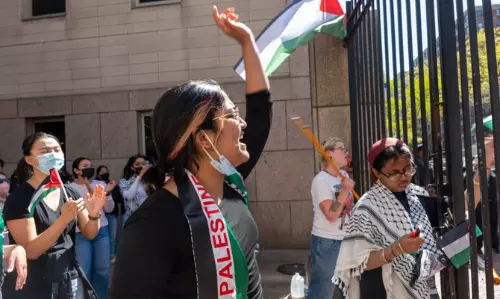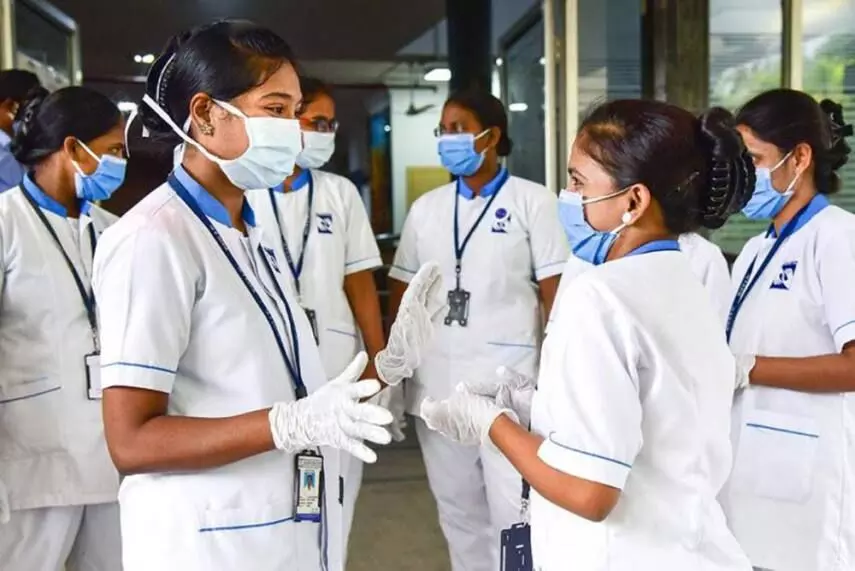
Linguistic hatred – a probable byproduct
text_fieldsRepresentational image
A circular issued by a government hospital in Delhi forbidding the use of Malayalam at the work place and ordering that only Hindi or English should be spoken, had to be withdrawn before its ink was dry at the face of widespread protests. The circular had also warned of strict action against violators. It was the nurses from Kerala, whose mother tongue is Malayalam, who received this circular from the reputed hospital of Delhi, the Govind Ballabh Pant Institute of Post-graduate Medical Education and Research (GIPMER), banning the use of Malayalam. The official paper issued in the name of the Nursing Superintendent, is said to have been issued on the basis of a complaint by some one who felt the the conversations among the 300-odd Keralite nurses working there as a disturbance. With news of the move, various political leaders and social activists came out with strong protest and the order had to be repealed. The explanation given by the Medical Superintendent is that the order was issued without the knowledge or instruction of the hospital management or the Delhi government and it was revoked.
As a matter of fact the Malayalam-phobic move of the hospital authorities falls in line with a pattern gaining currency across the country of imposing a monolithic model in everything, despite the fact that the distinction and beauty of India lie in the concept of unity in diversity. Even after the reorganisation of states along lingistic lines and 22 languages, including Malayalam spoken by larger sections of people, got official recognition, linguistic fanaticism and discrimination have raised their ugly head at different times in different parts of the country. And attempts to impose Hindi, one of the official languages, as the national language has often invited the resistance of southern states. Even before independence, when the erstwhile Madras Presidency government led by C Rajagoplachari made Hindi compulsory in secondary schools, Periyar EV Ramaswami Naicker came out in stiff opposition against it. Finally, the British government was forced to strike a compromise by making the use of Hindi optional. Since Tamil Nadu saw this pro-Hindi move as an onslaught on Dravidian languages and culture, and the state fiercely opposed it, even later national leaders including the prime minister Jawaharlal Nehru, had to give in to Tamil champions and masses. The very factor that helped the Dravida Munnetta Kazhakam (DMK) under the leadership of Karunanidhi hold Tamil Nadu politics under its thumb, was by using anti-Hindi sentiments. And in 1968, Tamil Nadu banished Hindi by ending the three-language formula from the schools. Be that as it may, people from Tamil Nadu still form 70 per cent of candidates writing the examination of Chennai-headquartered Dakshin Bharat Hindi Prachara Sabha. In other words, people are generally prepared to learn and respect any language. But the insistence on others also using a language dear to some, is a fascist dictum sure to invite hostility from any people with self-respect and dignity. And hence the wide opposition and protests at the Delhi hospital's decision. Hence the relevance of the fact pointed out by Kerala chief minister Pinarayi Vijayan that discriminating among employees based on language and culture is incompatible with a civilised society and an erosion of pluralism.
This antipathy shown towards Malayalam is not borne out of nothing, nor a brainchild of any isolated misguided individual. The country is now bearing the burden of an atmosphere of making every factor like language, land, race – which should get people together - is now being made means of hatred and disaffection, a trend abetted by the current ruling dispensation. And those who sow seeds of hate get a soil fertile for intolerance and alienation ploughed by that class. It is gratifying that all political parties came forward to protest strongly at the illogical decision of the Delhi hospital authorities. This is the kind of vigilance and alertness needed to nip any such fascist tendencies in the bud. And the ruling party at the Centre, the BJP, is also among those who rallied against the circular banning Malayalam. However, the BJP's blame against its rival party's government in the capital was that Delhi was ruled by people who have no grasp of constitutional principles. If such a voice of wisdom emanates from a grouping otherwise given to creating anarchy in the country by imposing its will in matter of food, language, attire and culture and to abusing and suppressing other voices, that is a sign of relief. The BJP has also emphasised the importance of mutual dependence and respect by citing the contribution of Malayalis in the country's health sector including making oxygen available during the Covid crisis. However, before conveying such humanitarian values to others with alacrity, if every one endeavours to internalise those values, the land and the people would be saved from linguistic and racial animosities.



















